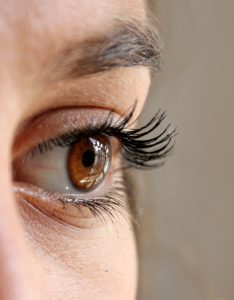
How To Prepare Well Before Rhinoplasty Or Eyelid Surgery
Preparing Well Before Your Rhinoplasty or Eyelid Lift Surgery
Plastic surgery is a growing in popularity due to its aesthetic benefits. Prior to your blepharoplasty eyelid or rhinoplasty surgery, your surgeon will enquire about your health condition and find out about your medical history and if you are taking any medication presently.

You will be asked about your previous surgeries, if any, and past medical conditions such as thyroid problems, circulatory problems, allergies, diabetes, glaucoma and dry eyes – if you are undergoing eyelid surgery, nasal obstruction if you are preparing for rhinoplasty. If you have suffered from previous heart attack or heart failure or if you have a bleeding disorder then you may not be allowed to undergo any plastic surgery.
Your doctor will conduct a complete physical examination, including blood tests. If you are undergoing eyelid surgery, your surgeon will also do a vision examination on your eyes, test your vision and examine your eyes including testing your tear production and measuring parts of your eyelids. If you are preparing for a nose job rhinoplasty surgery, your doctor will examine your skin and the inside and outside of your nose to determine what changes are needed to be made as well as determining the impact of rhinoplasty on your breathing.
Photographs. Your surgeon or someone from the plastic surgery clinic will take photographs of the area that your surgery will be targeting at. If you are undergoing a blepharoplasty eyelid surgery, your eyes will be photographed from different angles. If you are doing nose job surgery, photographs of your nose will be taken from different angles. Your doctor will use these photographs for before-and-after assessments, as reference during the surgery and for long-term reviews. Your surgeon may also use computer program to manipulate the photographs to project what type of results you can expect following your cosmetic surgery.

If you have suffered from previous heart attack or heart failure or eye diseases like glaucoma, you may not be allowed to undergo the surgery. If you are a smoker, you will be advised to quit smoking several weeks prior to your surgery as smoking will impair your ability to heal and result in a longer time for your surgical wounds to heal as compared to a non-smoker. Smoking may also increase your risk of complications and getting an infection.
You should also stay away from medications and supplements that could cause unnecessary bleeding such as aspirin, naproxen, Ibuprofen, anti-inflammatory drugs, ginseng, Ginkgo in the weeks leading up to your surgery as these affect your healing process and may increase the risk of bleeding as well as interact with any medication given to you during or after surgery. Take only medications or herbal supplement approved by your surgeon.
There are supplements that have been shown to improve wound healing, build new collagen, and decrease inflammation and swelling. You can begin taking multi-vitamins with Vitamin A, Vitamin C, Omega-3 fatty acids as these are recommended before surgery and are to be continued post surgery for another couple of weeks.

It is important to arrange for someone to drive you home after your surgery as you may be tired or feel groggy from the general anaesthetic and is not safe for you to drive home. It is advisable to have someone stay with you for the first night when you return home after surgery.
For the first couple of days after general anesthesia, you may experienced lapses of memory, impaired judgement and have a slowed reaction time. Therefore try to have someone stay with you for the first night or twon to help with your personal care when you return home from your rhinoplasty or blepharoplasty surgery.
If you have young children or pets to look after, arrange for someone to look after them for the first few days following your surgery. You want to avoid having a lively toddler or active dog jumping all over you.
Arrange for your everyday items to be placed within easy reach and close to hand so you do not need to bend over or do the lifting movement as these motion can cause increase in the blood flow to your eyes or to your nose.
If you are having pre-surgery anxiety, this is normal especially knowing that the plastic surgery will affect your appearance. Being informed and well prepared before your nose or eyelid surgery will certainly help to ease some of the tension and anxiety you may have.